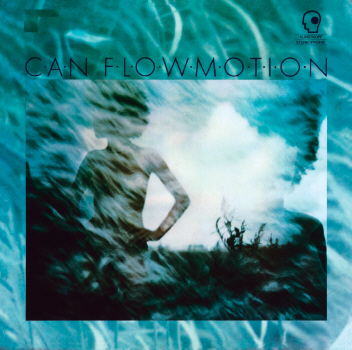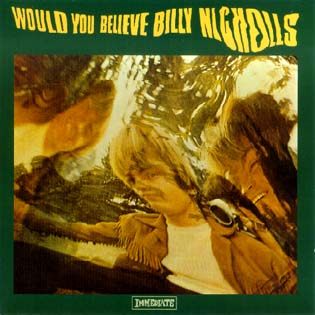 Quality: 3.75 out of 5
Quality: 3.75 out of 5Trip-O-Meter: 4 out of 5
This Holger Czukay solo disc does share many attributes with contemporary Can. There is a strong focus on dance rhythms and not so much instrumental experimentation. But where latter day Can could never quite "let it all hang out" so to speak, Movies seems very comfortable in it's campiness. It also provides a fertile field for Czukay to go wild with his innovative sampling techniques. In fact, I'd say the trip-o-meter rating is exclusively based on the sampling as the music itself often straightforward (the long tracks get a little stranger).
Even more than Can, Movies is of a kin with David Byrne and Brian Eno's My Life In The Bush Of Ghosts. Both place samples over kind of funk/jazz like instrumentals. Byrne and Eno would use samples as the backbone of the song. Czukay doesn't sample to this extreme ("Cool In The Pool" has a distinct non-sampled vocal), but he did manage to do this first, although he rarely seems to get credit for it.
There are only four tracks present. "Cool In The Pool" sounds like a Steely Dan song with a Victorian-era cross dressed on vocal. It's really campy, but fun, and the sampling is really the main event. "Oh Lord, Give Us Some Money" is far more Can-like, featuring Can's signature descending riff. It's 12 minutes long and is far better than the "epics" can was recording at the time. Actually, there is a strong Can presence throughout this album as Leibezeit is playing drums at the top of his game throughout the album, and Karoli and Schmidt each appear on a track.
Side two follows a similar pattern with "Persian Love" once again giving us camp that you'll probably love or hate, and "Hollywood Symphony" outdoing Can's epic tracks of the same era. The latter tracks seems to incorporate a little bit of fusion into its sound, which is a nice touch.
Rather than Can's Saw Delight or Out Of Reach, I would recommend Czukay's Movies. It is after the same sort of sound as latter Can was, but tends to be much more successful, and gives a full view of Czukay's innovations in sampling. Besides, everyone from Can shows up here anyway.
Buy Me:
Holger Czukay - 1979 - Movies










